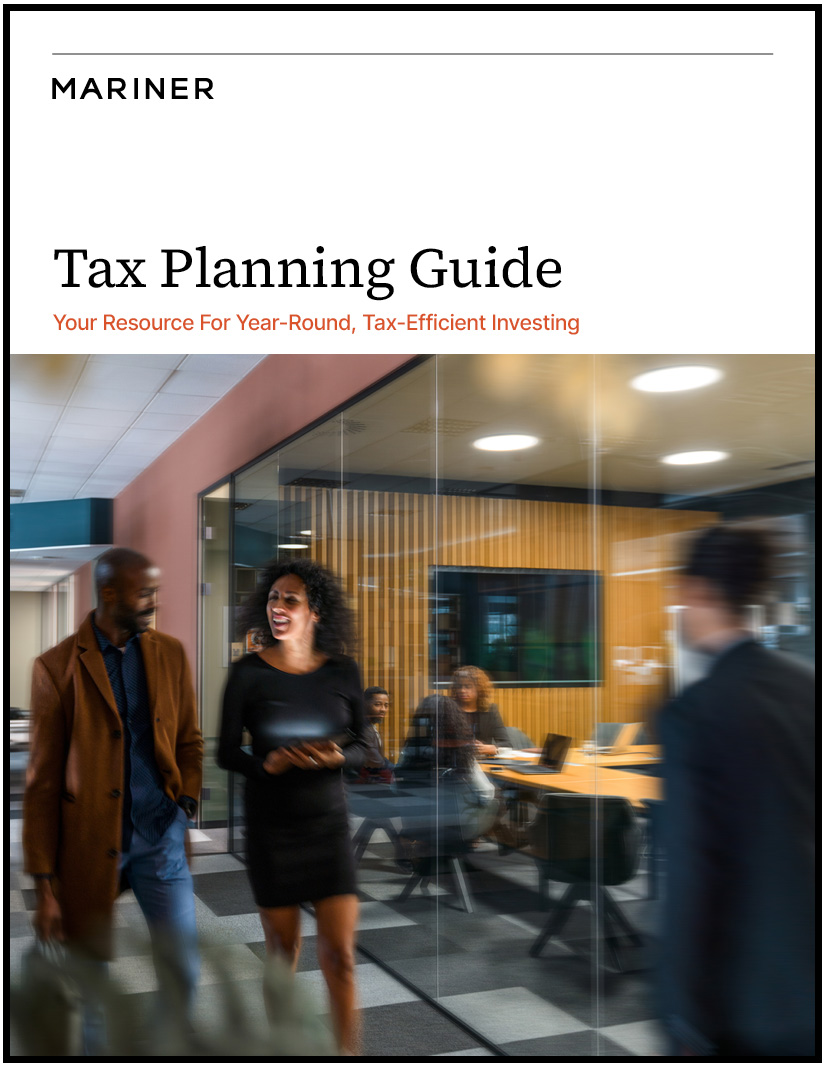Potential Tax Changes Remain in Spending Bill Under Senate Review

On Nov. 19, the House passed the Build Back Better bill, which includes more than $1.5 trillion in business, international and individual tax increase provisions. Some of those tax provisions might be revised by the Senate and require further action by the House before the bill becomes law.
Two Key Items Eliminated From Bill
No longer on the table: the proposed top tax bracket increase from its current 37% to 39.6% and the capital gains tax of 25% for individuals, which would have significantly affected high-net-worth individuals.
Taxes for Individuals Still Under Consideration
The following are key individual tax provisions included in the bill under consideration that could become effective after Dec. 31, 2021, if the Senate makes no changes:
- Surtax on high-income individuals and trusts. The surcharge tax would equal the sum of 5% of the amount of a taxpayer’s adjusted gross income (“AGI”) that exceeds $10 million ($5 million for married filing separately (MFS); $200,000 for an estate or trust; an additional 3% of the amount of taxpayer’s AGI that exceeds $25 million ($12.5 million for MFS; $500,000 for an estate or trust).
- Expansion of the 3.8% net investment income tax to also apply to income derived in the ordinary course of a trade or business for taxpayers with taxable income of over $500,000 for those married filing jointly and income over $400,000 for single tax filers. This would include income from S corporations, partnerships/LLCS and sole proprietorships.
- Limitations on qualified small-business stock exclusions. A proposed amendment to the bill would disallow the 75% and 100% exclusion of gain from the sale of stock if the taxpayer’s AGI is over $400,000 or if the taxpayer is a trust or estate.
- Wash-sale rules on cryptocurrency, commodities and foreign currencies.
- Excess business loss limitations on noncorporate taxpayers made permanent.
- One-year extension of the expanded child tax credit.
- Increase the limitation on SALT (state and local tax) deduction cap from $10,000 to $80,000 for individuals and would extend the limitation through 2030. Unlike the above items, this provision would be effective for tax years beginning after 2020, so on 2021 tax returns.
Tax Guide: Your Resource for Year-Round Tax-Efficient Investing
Year-round planning with an advisor could help improve your overall wealth plan. Find out more by downloading our tax guide.
Proposed Retirement Tax Provisions:
- Limits on contributions to Roth or traditional IRAs where the total account value exceeds $10 million, with mandatory distributions (regardless of age) if that amount is exceeded. This provision would be effective for tax years beginning after Dec. 31, 2028.
- Prohibit employee after-tax contributions in qualified plans and after-tax IRA contributions from being converted to a Roth IRA (e.g., the backdoor Roth), regardless of income level, effective for distributions, transfers and contributions made after Dec. 31, 2021.
- Eliminate Roth conversions for both IRAs and employer-sponsored plans for single taxpayers (or taxpayers MFS) with taxable income over $400,000, married taxpayers filing jointly with taxable income over $450,000, and heads of household with taxable income over $425,000 (all indexed for inflation). This provision applies to distributions, transfers and contributions made in tax years beginning after Dec. 31, 2031.
Proposed Business Tax Provisions:
- 15% minimum tax on corporate financial statement profits over $1 billion.
- 1% surcharge on corporate stock buybacks effective for repurchases of stock after Dec. 31, 2021. The provision would apply to any domestic corporation the stock of which is traded on an established securities market.
Paid Leave Benefits:
Provision for four weeks of paid leave benefits for caregiving leave. These paid leave benefits would not be considered gross income to the recipient for tax purposes.
Meet With Your Wealth Advisor
Because taxes can be complex and differ for individuals based on their financial picture and AGI, we recommend that you meet with your wealth team. At Mariner, our tax planning and preparation team is in-house and will work closely with you and your wealth advisor to implement tax strategies designed to minimize your overall tax burden.
Source:
“Tax Provisions in the Build Back Better Act”
The tax laws discussed are proposed at the time and any final laws or regulations passed may vary significantly from the proposed. Tax laws and regulations are complex and subject to change, and we cannot guarantee that the information herein is accurate, complete, or timely. Any changes to the proposed may also affect any illustrations discussed in this article.
This article is limited to the dissemination of general information pertaining to Mariner Wealth Advisors’ investment advisory services and general economic market conditions. The views expressed are for commentary purposes only and do not take into account any individual personal, financial, or tax considerations. As such, the information contained herein is not intended to be personal legal, investment or tax advice or a solicitation to buy or sell any security or engage in a particular investment strategy. Nothing herein should be relied upon as such, and there is no guarantee that any claims made will come to pass. Any opinions and forecasts contained herein are based on information and sources of information deemed to be reliable, but Mariner Wealth Advisors does not warrant the accuracy of the information that this opinion and forecast is based upon. You should note that the materials are provided “as is” without any express or implied warranties. Opinions expressed are subject to change without notice and are not intended as investment advice or to predict future performance. Past performance does not guarantee future results. Consult your financial professional before making any investment decision.
Additional fees may apply for tax planning and preparation services. The tax laws discussed are proposed at the time and any final laws or regulations passed may vary significantly from the proposed. Tax laws and regulations are complex and subject to change, and we cannot guarantee that the information herein is accurate, complete, or timely. Any changes to the proposed may also affect any illustrations used in this article.
Mariner is the marketing name for the financial services businesses of Mariner Wealth Advisors, LLC and its subsidiaries. Investment advisory services are provided through the brands Mariner Wealth, Mariner Independent, Mariner Institutional, Mariner Ultra, and Mariner Workplace, each of which is a business name of the registered investment advisory entities of Mariner. For additional information about each of the registered investment advisory entities of Mariner, including fees and services, please contact Mariner or refer to each entity’s Form ADV Part 2A, which is available on the Investment Adviser Public Disclosure website. Registration of an investment adviser does not imply a certain level of skill or training.


